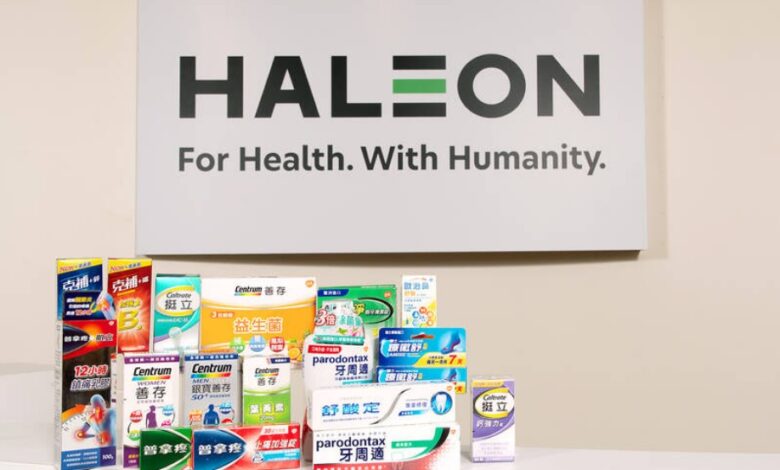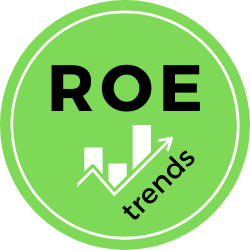Haleon Stock Analysis

Haleon plc (HLN) is a global leader in consumer healthcare, established through the demerger of GSK’s consumer healthcare division in 2022. With a diverse portfolio of iconic brands like Sensodyne, Panadol, Advil, Centrum, and Voltaren, Haleon is committed to improving everyday health with a human touch. As a newly independent company, Haleon is carving out its place in the competitive consumer healthcare sector, implementing a focused growth strategy. In this Haleon stock analysis, we’ll evaluate the company’s Return on Equity (ROE), its strategic direction, strengths, weaknesses, and its position in the competitive landscape.
What is ROE, and Why is it Important for Haleon Stock Analysis?
Return on Equity (ROE) is a crucial financial metric for assessing a company’s profitability in relation to shareholders’ equity. In simple terms, a higher ROE indicates more efficient use of investor capital, which translates to stronger financial performance and potential returns for shareholders. For investors conducting a thorough Haleon stock analysis, understanding the company’s ROE is vital.
Haleon’s ROE: Early Performance and Future Outlook
| Year | ROE (%) |
|---|---|
| 2022 | 15.8 |
| 2023 | 17.2 |
| 2024 | 19.0 (projected) |
As a newly public company, Haleon has only a few years of ROE data, but the early results are promising. The table above highlights a steady increase in ROE since the company’s inception.
Key observations from this data include:
- Initial Performance: Haleon began its journey with a respectable ROE of 15.8% in 2022, reflecting the strength of its brand portfolio and market presence.
- Growth Trajectory: With ROE rising to 17.2% in 2023, the company shows consistent improvement in profitability and capital efficiency.
- Future Outlook: A projected ROE of 19.0% in 2024 suggests continued growth as Haleon executes its strategy and expands its global reach.
When conducting a Haleon stock analysis, investors should also consider other financial metrics, industry trends, and qualitative factors like the company’s competitive position and growth initiatives.
Understanding Haleon: A Focus on Everyday Health
Haleon’s purpose is “to deliver better everyday health with humanity,” which drives its business strategy. The company is committed to:
- Iconic Brands: Haleon’s portfolio includes globally recognized and trusted brands such as Sensodyne, Panadol, Advil, Centrum, and Voltaren, which offer strong consumer recognition and loyalty.
- Innovation: Investing in research and development (R&D) to launch new products and improve existing ones. This innovation extends to new formulations and the exploration of digital health technologies.
- Sustainability: Promoting ethical sourcing, environmentally responsible manufacturing, and sustainability initiatives across its global operations.
- Accessibility: Expanding its market reach to ensure consumers around the world have access to its healthcare products.
Strengths and Weaknesses in Haleon Stock Analysis
Strengths:
- Strong Brand Portfolio: Haleon owns a range of powerful brands that provide consistent revenue and consumer loyalty.
- Global Reach: With a presence in many countries, Haleon can adapt to regional consumer needs while maximizing growth potential in new markets.
- Innovation and E-commerce: The company is dedicated to innovation, launching new products and expanding its e-commerce capabilities to reach a broader consumer base.
Weaknesses:
- High Competition: The consumer healthcare market is highly competitive, with numerous global and local players vying for market share.
- Pricing Pressures: Increased competition and consumer demand for affordability may limit Haleon’s ability to raise prices without impacting sales.
- Economic Sensitivity: Changes in economic conditions may affect consumer spending on healthcare products, particularly non-essential items.
- Reliance on Key Brands: Haleon’s performance is heavily reliant on the success of its leading brands, which could be vulnerable to competitive pressures or market changes.
The Competitive Landscape: Key Rivals in Consumer Healthcare
In this Haleon stock analysis, it’s essential to consider the company’s competitors, including:
- Johnson & Johnson: A global healthcare giant with a broad range of consumer health brands, including Band-Aid and Tylenol.
- Procter & Gamble: A major competitor in oral care and personal healthcare with brands like Oral-B, Crest, and Vicks.
- Bayer: With brands like Aleve and Claritin, Bayer is a strong competitor in pain relief and allergy categories.
- Reckitt Benckiser: Known for Mucinex and Nurofen, Reckitt Benckiser is a formidable player in pain relief and cough and cold markets.
- Sanofi: A global pharmaceutical leader with a growing consumer healthcare division, featuring products like Gold Bond and Act.
Haleon’s Key Projects and Initiatives
Haleon is focusing on several key initiatives that are crucial for future growth:
- New Product Launches: Expanding into pain relief, digestive health, and oral care to meet consumer demands.
- E-commerce Growth: Building its digital and direct-to-consumer sales channels to provide greater accessibility.
- Sustainability: Implementing sustainable practices across its supply chain to reduce environmental impact.
- Geographic Expansion: Entering high-growth emerging markets to capitalize on new consumer bases.
Haleon’s Future: Innovation and Growth in Consumer Healthcare
As Haleon continues to navigate the evolving consumer healthcare landscape, its ability to innovate and expand its product offerings will be key to long-term success. For those conducting a Haleon stock analysis, factors like new product development, market expansion, and maintaining strong brand equity are crucial to watch.
Is Haleon (HLN) Stock a Good Investment?
Haleon’s strong brand portfolio, commitment to innovation, and global market presence position it well for future growth. The company’s upward ROE trend signals increasing profitability, making it a potentially attractive investment. However, investors should remain cautious of risks such as pricing pressures, competition, and economic sensitivity when considering Haleon stock.

